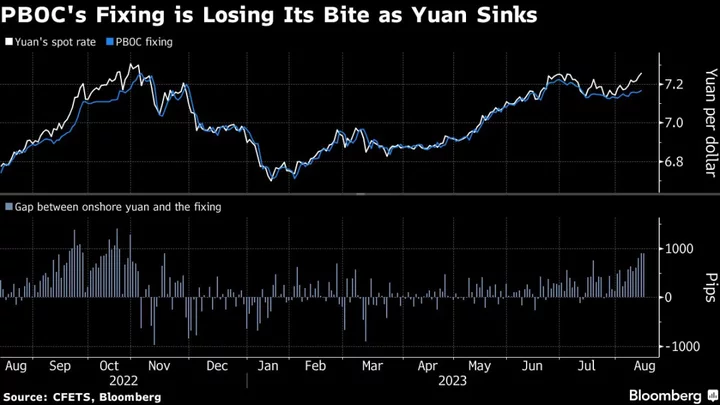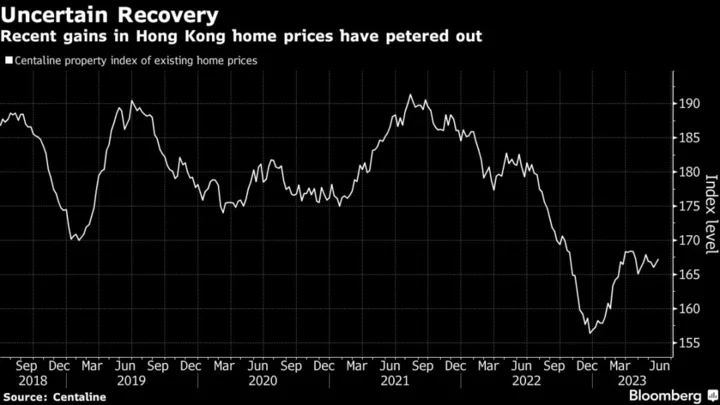China’s yuan is plumbing fresh lows for the year with the central bank’s favorite tool for guiding the managed currency quickly losing its effectiveness.
The onshore yuan on Monday closed at the largest discount since December to the People’s Bank of China’s daily reference rate, a sign Beijing is failing to bolster worsening confidence caused by weaker-than-expected economic data and heightening credit risks. Policymakers have been setting their daily fixing for the currency at stronger-than-forecast levels since late June.
The offshore yuan on Monday sank through this year’s low to the weakest level since November, even after the central bank issued a fixing with the largest positive bias since July. The PBOC is in fact faced with a major dilemma: allowing the yuan to weaken along with deteriorating sentiment may increase financial instability, while propping up the currency too much would risk further hurting the fragile economy.
Tuesday looks to be a pivotal day for yuan traders as China will release a slew of keenly watched economic data including retail sales and fixed-asset investment. The fixing, which limits the currency’s moves by 2% on either side, will also convey a clue about its stance on the yuan. Finally, the central bank will need to decide how it wants to cope with 400 billion yuan ($55.1 billion) of policy loans coming due.









